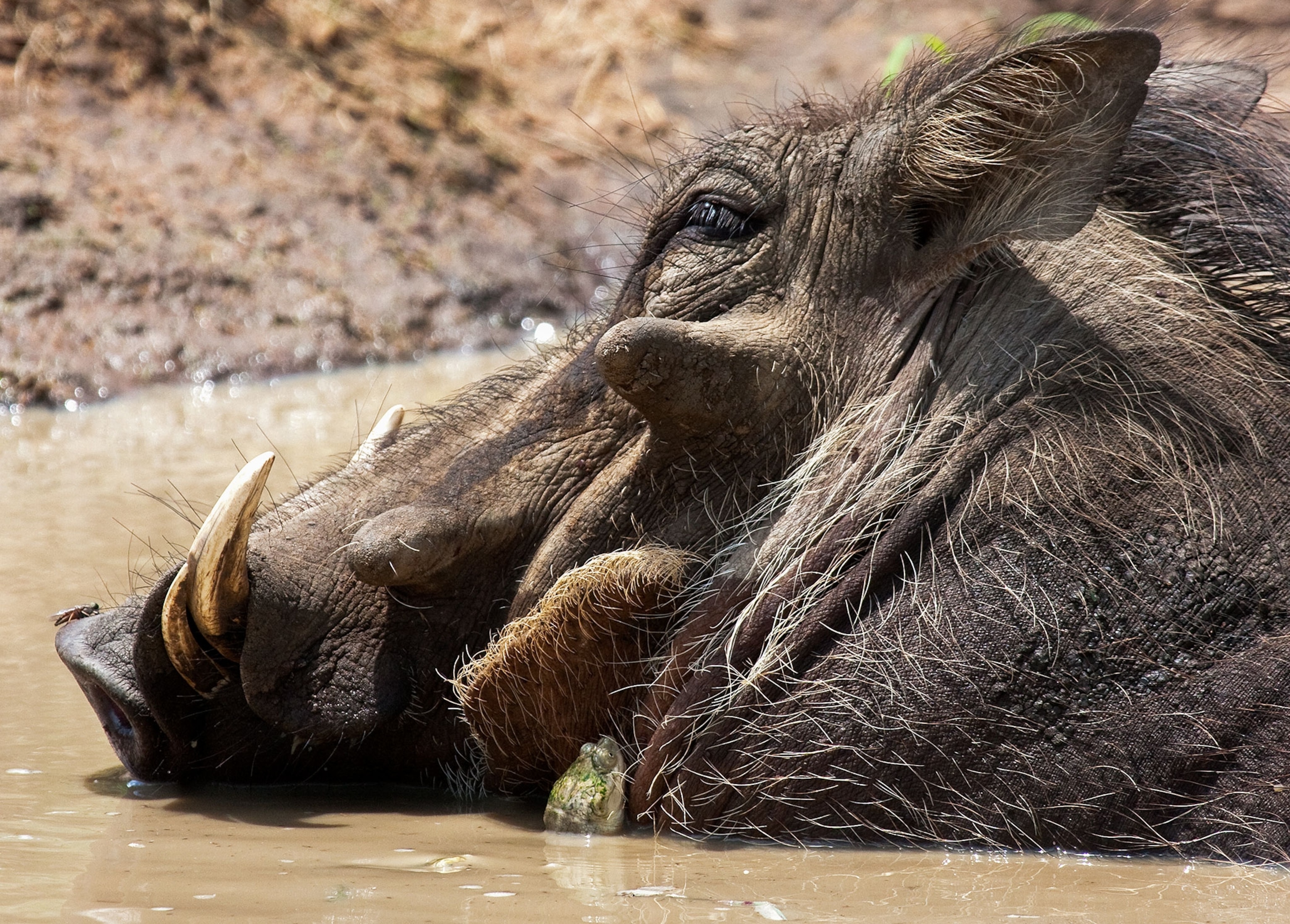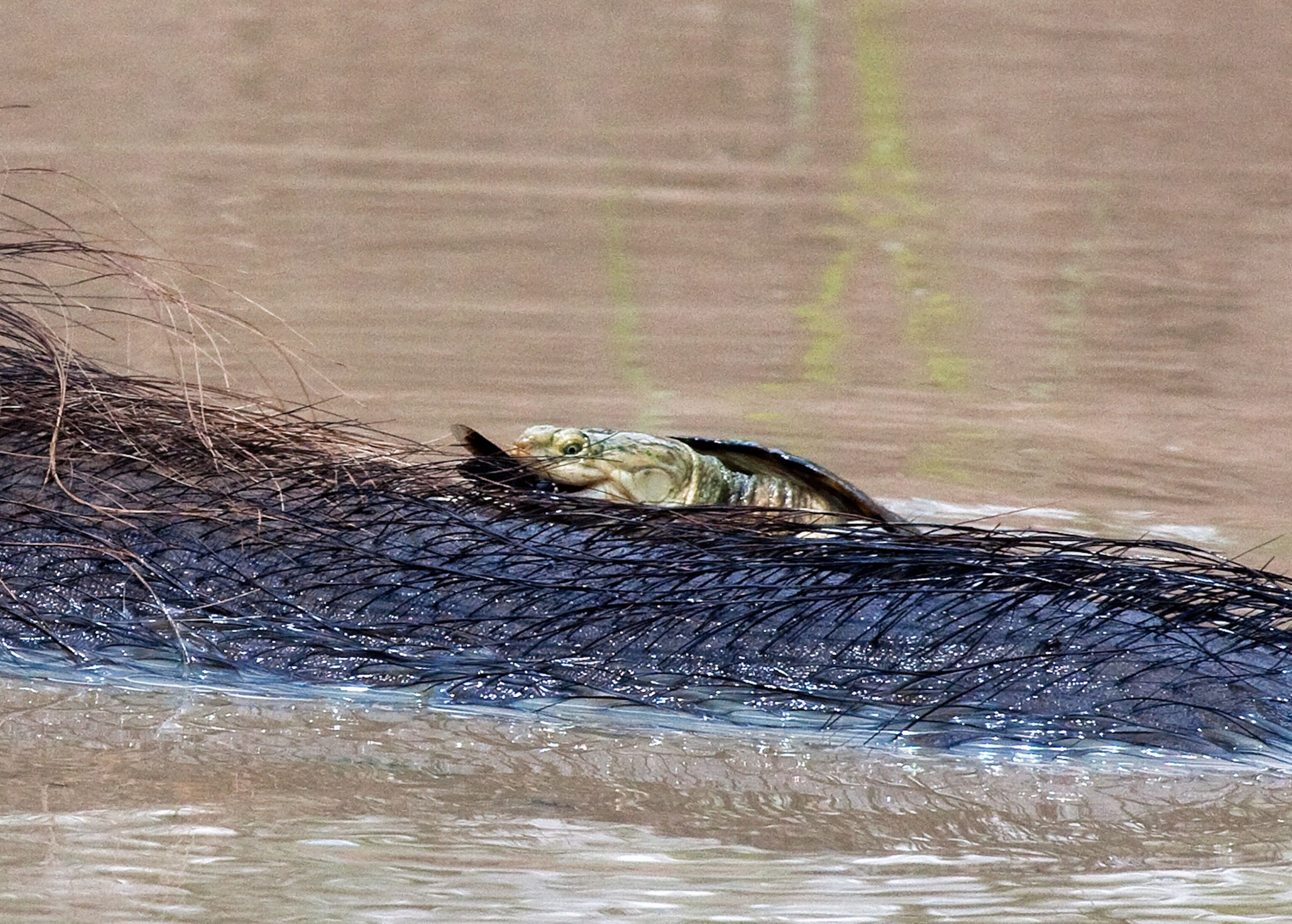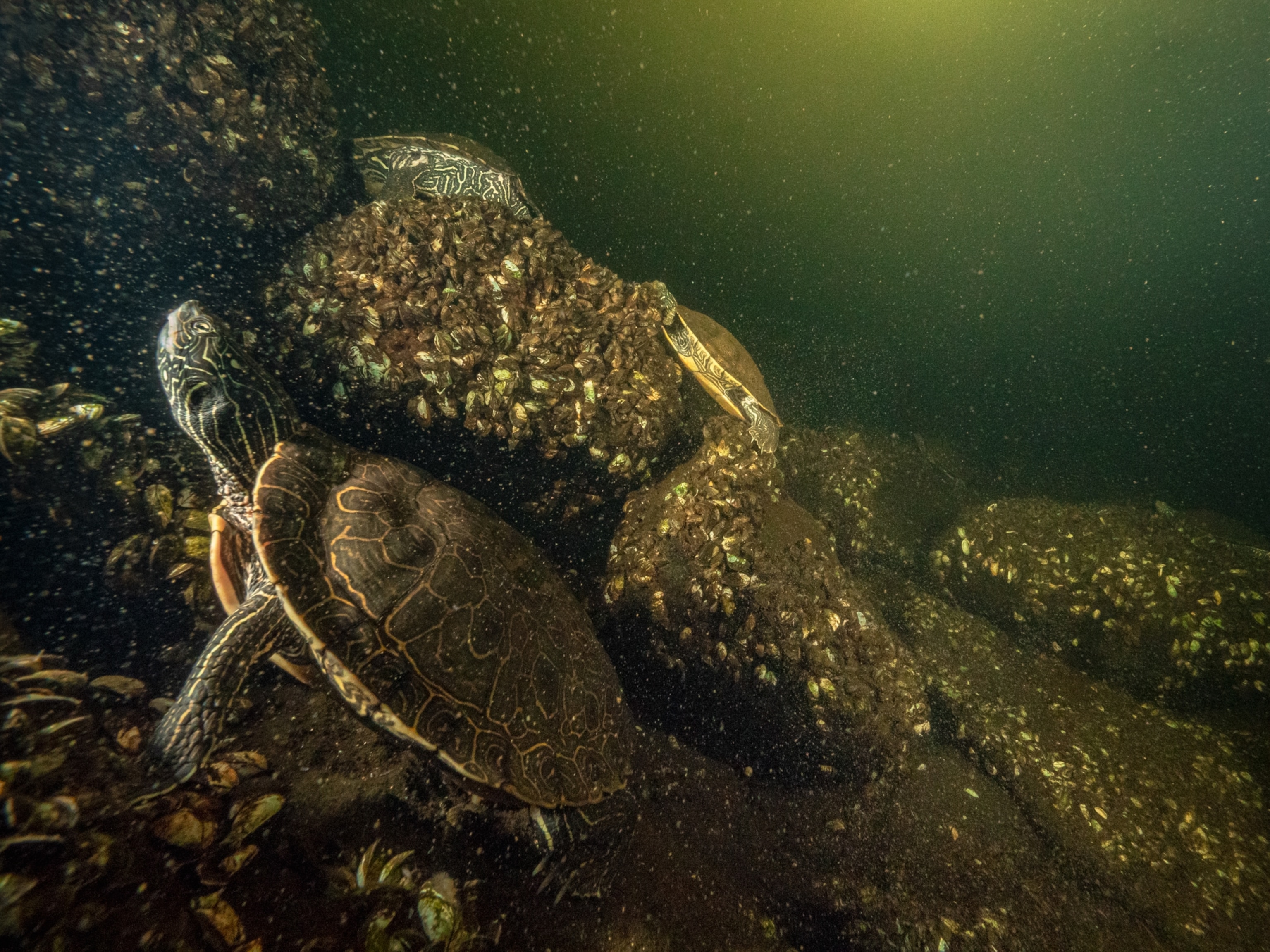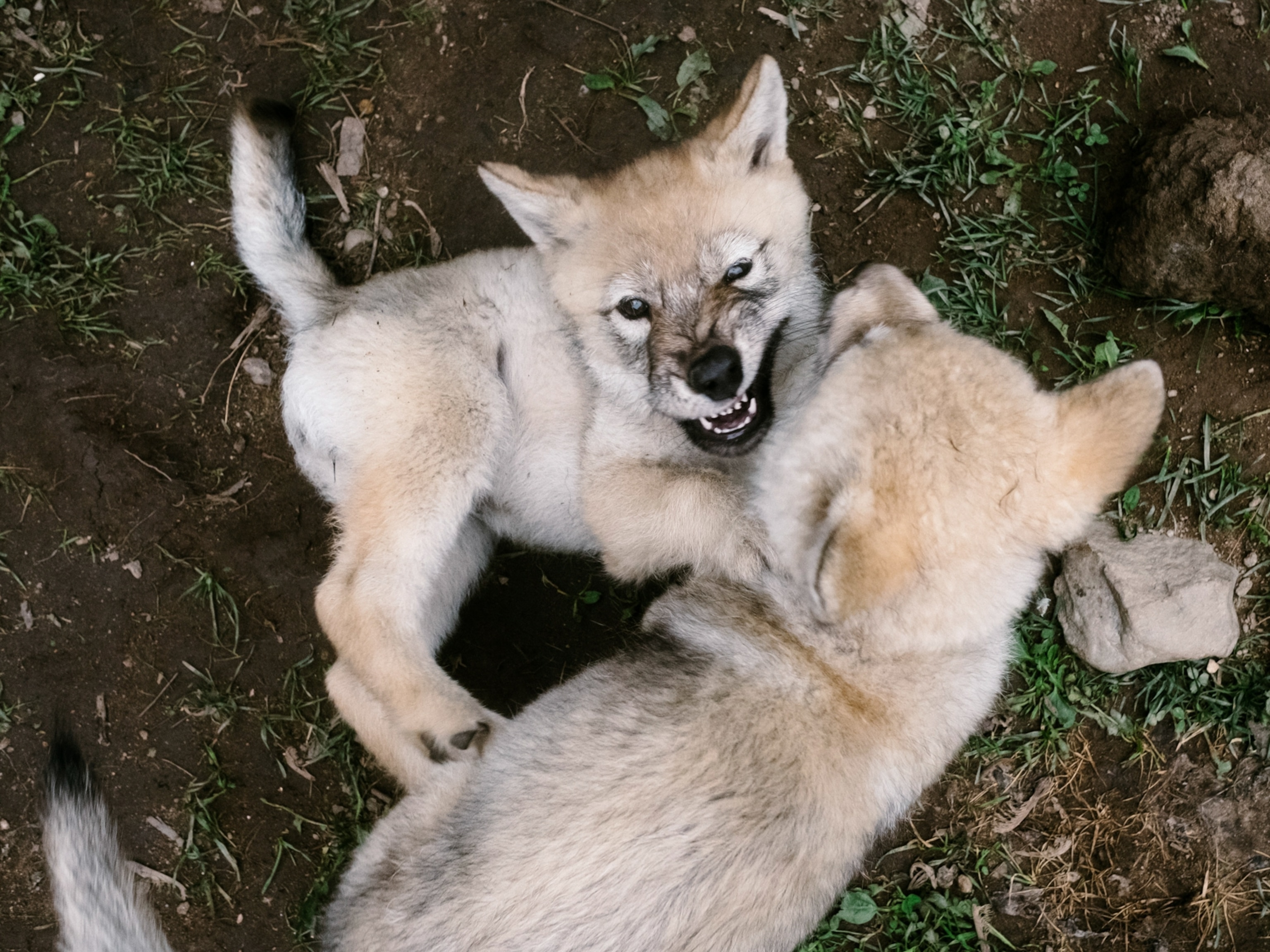
Turtles Groom Warthog in Never-Before-Seen Behavior
"I couldn't believe what I was seeing," says scientist who captured the rare pictures in South Africa.
It may not be the most fashionable salon on the savannah, but turtles were recently caught operating a grooming service for warthogs out of a muddy waterhole in South Africa.
In recent pictures taken in Hluhluwe-iMfolozi Park, two South African helmeted turtles (Pelomedusa galeata) pluck parasites from a warthog (Phacochoerus africanus)—a behavior that's never been documented before.
In fact, there are very few records of turtles cleaning other animals, either on land or in the ocean, according to a report in the September issue of Herpetological Review.
The married authors, ornithologist Andy Jones and wildlife resources manager Michelle Leighty Jones, both of Ohio's Cleveland Museum of Natural History, chanced upon the odd interaction while on vacation in February. (Also see "Wild Gorillas Groom U.S. Tourist in Uganda.")
Andy and Michelle were watching a warthog when it entered a waterhole, and two turtles swam toward it.
“Once the turtles started circling and biting at the warthog’s skin, we knew we were seeing something unusual,” Andy said.
Having lowered itself into the muddy water, the warthog waited patiently for ten minutes as the two feeding turtles attended to it. The mammal didn't flinch even when turtles pulled ticks from its face, and at one point it lowered itself further in the water to allow a turtle to reach a large, blood-sucking fly on its back. (See "That's the Spot! Chimps Instruct Groomers, Study Says.")
“I couldn’t believe what I was seeing, but we had no idea that this behavior was so poorly documented,” Jones says.
I'll Scratch Your Back...
Such behavior is rarely seen, confirms reptile expert Bill Branch, honorary curator emeritus at South Africa's Port Elizabeth Museum, who wasn't involved in the new report.

Branch notes via email that the only previously recorded instances of freshwater turtles eating ticks or other parasites on larger animals involved Cape buffalo and rhinos.
“I can think of no other reptile that regularly cleans ticks off other large vertebrates,” he says.
The scarcity of such records may be partly due to the fact that oxpeckers and other birds regularly clean parasites from large African mammals, including warthogs, while they're on land. (Watch a video of fish cleaning a hippo.)
Specialist groomers, such as oxpeckers, cleaner fish, and cleaner shrimp, have evolved mutually beneficial partnerships with their host animals—the cleaners get a meal, while the host rids itself of pesky parasites.
In rare turtle cases like this warthog one, however, Branch suspects the grooming is just opportunistic feeding—and not evidence of established mutualistic behavior between the two species. (Also see "Cleaner Fish Wear 'Uniforms' to Advertise, Avoid Danger.")
Andy Jones adds the time of year may have been a factor: It was the dry season, and food was likely scarce for the turtles in their shrunken waterhole.
“I expect that hungry turtles routinely bite at flies on whatever surface is around, and in some cases the mammals are smart enough to remember this and return the next time flies or ticks are bothering them,” he says.
While a mud bath with turtles might be smart thinking for a warthog, luckily we humans have a much easier solution: bug repellent.




